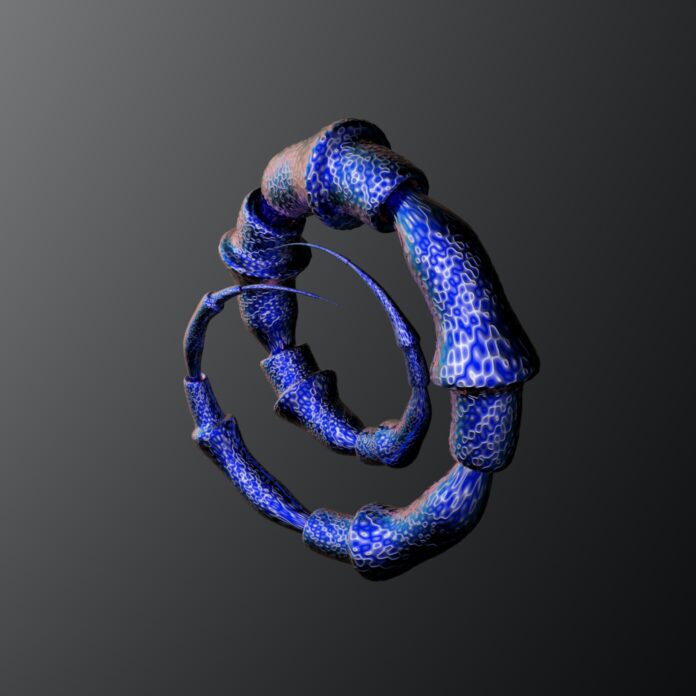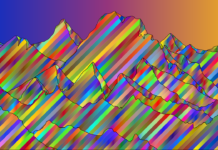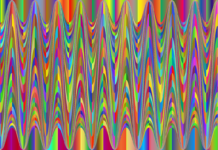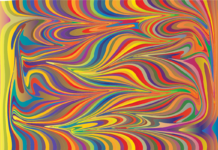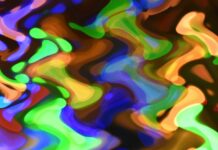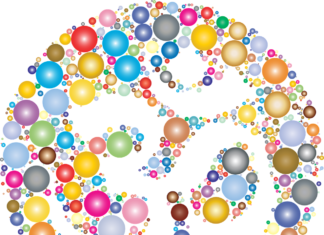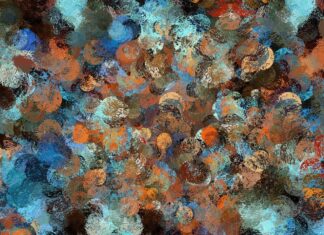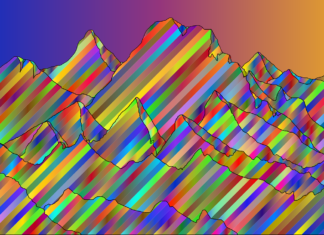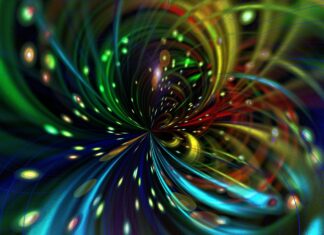Simulated Reality, a concept that has captivated human imagination for centuries, is a philosophical and technological idea that postulates the existence of a digital or simulated world indistinguishable from our own reality. In Simulated Reality, the world we perceive and interact with could be an intricate simulation generated by advanced technologies, such as computers or superintelligent beings. This mind-bending hypothesis challenges the very essence of our understanding of existence, consciousness, and the nature of reality itself. It has been explored in various forms throughout history, from ancient philosophical debates about the nature of reality to modern science fiction stories that contemplate the possibilities of virtual worlds. Simulated Reality brings forth intriguing questions about the nature of consciousness, the limits of human understanding, and the potential implications of living within a simulated universe.
One of the earliest references to the idea of Simulated Reality can be found in the allegory of Plato’s Cave, written by the ancient Greek philosopher Plato. In this allegory, Plato presents a scenario where prisoners are confined inside a dark cave, facing a blank wall. Behind them, a fire casts shadows of objects on the wall, and the prisoners, unable to turn their heads, mistake these shadows for reality. Plato’s Cave illustrates the notion that what we perceive as reality might be merely a shadow or an illusion of a deeper, true reality that lies beyond our senses. This notion resonates with the core concept of Simulated Reality, where the world we perceive could be a mere simulation, and a more fundamental reality exists beyond our comprehension.
Fast forward to the present day, and the concept of Simulated Reality has become a topic of great interest in philosophy, science, and popular culture. Technological advancements in fields such as artificial intelligence, virtual reality, and quantum computing have further fueled speculation about the plausibility of Simulated Reality. The rise of computer simulations and video games that immerse users in highly realistic virtual worlds has also contributed to the popularization of the idea. These simulations are already impressive, but they are still primitive compared to the level of realism that would be required for a perfect simulation of reality.
In the realm of science fiction, Simulated Reality has been a recurring theme in literature and movies. Works like “The Matrix,” directed by the Wachowskis, present a dystopian world where sentient machines have enslaved humanity by trapping their minds in a complex simulated reality, while their bodies are used as an energy source. The movie explores philosophical questions about the nature of reality, free will, and the consequences of living in a simulated world. Similarly, authors like Philip K. Dick and StanisÅ‚aw Lem have delved into the theme, exploring the blurring boundaries between reality and illusion, and the challenges of discerning one from the other.
As the technological landscape progresses, scientists and philosophers have engaged in thought experiments to investigate the likelihood of Simulated Reality. One of the most famous of these is Nick Bostrom’s simulation argument, which proposes three possibilities: (1) Almost all technologically mature civilizations go extinct before they can create advanced simulations; (2) Advanced civilizations have no interest in creating simulations that are conscious and self-aware; (3) We are most likely living in a simulation. Bostrom argues that if a civilization reaches a point of technological advancement where it can create complex simulations of conscious beings, it would likely create a vast number of such simulations, vastly outnumbering the number of “real” conscious beings. Consequently, the probability of us being in one of these simulations would be much higher than the probability of us being in the “real” world.
This leads to profound philosophical questions about the nature of consciousness and identity. If our reality is simulated, do we truly possess consciousness, or are we merely sophisticated lines of code, acting out predetermined scenarios? Can the experiences and emotions we feel in a simulated world be considered genuine, even if they are products of a simulated environment? The answers to these questions are far from straightforward and continue to challenge our understanding of the self and consciousness.
Furthermore, Simulated Reality raises ethical and moral dilemmas. If we were to discover that we are, indeed, living in a simulation, what implications would this have for our ethical systems and the value we place on life? Would it lead to a nihilistic perspective, where everything is perceived as inherently meaningless, or would it inspire a deeper appreciation for the intricacies of the simulation and the conscious experience it offers? Additionally, if future civilizations have the capability to create simulations containing sentient beings, what ethical responsibilities do they have towards the entities within those simulations? Should they ensure the well-being and happiness of the simulated beings or treat them as expendable constructs?
Despite the intriguing nature of Simulated Reality, there are significant challenges to both proving and refuting the hypothesis. From a scientific perspective, it is currently impossible to determine with certainty whether our reality is a simulation or not. The idea of living in a simulation is based on the assumption that future civilizations will possess the technology and motivation to create such advanced simulations. Until we develop a deeper understanding of the universe and the fundamental laws governing it, we cannot definitively assert the existence or non-existence of a simulated reality.
However, some theorists argue that certain phenomena or anomalies in our reality could provide hints that we are living in a simulation. For instance, if we were to discover fundamental glitches or limitations in the fabric of our reality—such as finding inconsistencies in the laws of physics or encountering boundaries beyond which we cannot explore—these could be interpreted as evidence of a simulated environment. Alternatively, some theorists propose that the discovery of hidden codes or patterns embedded in the fabric of reality could be indicative of a simulated universe.
In contrast, proponents of the “base reality” argument contend that our universe is most likely not a simulation. They argue that creating such a comprehensive and sophisticated simulation would require computational power far beyond what is physically achievable, even by a super-advanced civilization. Additionally, they point out that the very act of creating a simulation of our universe would imply the existence of a higher, base reality in which the simulation is being run—a reality that is supposedly “more real” than the simulated one. In this line of thinking, it is more logical to assume that we are living in the base reality rather than a nested simulation within another simulated universe.
To further complicate matters, some experts suggest that the question of whether our reality is a simulation might be fundamentally unanswerable due to the limitations of our human cognition. If we are indeed living in a simulated world, the architects of the simulation may have designed it in such a way that we cannot perceive or access the underlying reality. Our brains and sensory organs may be deliberately limited to prevent us from discovering the true nature of our existence. This concept draws parallels with the philosophical concept of “veil of perception,” which posits that our sensory experiences create a veil between us and the external world, making it impossible to access reality directly.
As we venture further into the realms of artificial intelligence, quantum computing, and virtual reality, the discussion surrounding Simulated Reality is likely to persist and evolve. The possibility of creating increasingly realistic simulations will force us to confront the philosophical, ethical, and existential implications of simulated existence. As we explore the nature of our own reality, we may gain deeper insights into the very essence of consciousness, identity, and the fabric of the universe.
Moreover, as technology continues to advance, the development of highly sophisticated virtual realities and artificial intelligence systems will likely raise ethical concerns about the creation and treatment of sentient beings within simulations. If we were to reach a point where we can create conscious, self-aware entities in a simulated environment, we would face complex moral dilemmas regarding the rights and well-being of these beings. The idea of creating simulated beings with consciousness akin to our own would challenge our understanding of what it means to be human and what it means to possess consciousness.
Ethical considerations aside, Simulated Reality also has profound implications for our understanding of the universe and our place within it. If our reality is indeed a simulation, it would suggest the existence of highly advanced creators or architects, capable of designing and maintaining such an elaborate construct. This raises questions about the nature of these creators, their motivations, and their relationship to us as simulated beings. Some might argue that the existence of such creators implies the presence of a higher intelligence or an overarching purpose to our existence, while others might view them as indifferent or even malevolent entities.
Furthermore, the concept of Simulated Reality has implications for our perception of time and history. If our reality is simulated, it would mean that our past, present, and future are all part of the simulation’s design. Every event, decision, and action could be preordained or scripted by the creators, leaving us with a predetermined destiny. This idea challenges the notions of free will and personal agency, as it suggests that every aspect of our lives is part of a grand plan beyond our control.
Simulated Reality also raises questions about the nature of our physical reality. If the world we perceive is a simulation, what is the true nature of the underlying reality? Is it composed of a different set of physical laws, dimensions, or even a completely different universe altogether? Understanding the mechanics of the simulation and the true reality beyond it becomes a daunting task, especially if we are confined to the simulation itself and lack the means to investigate the higher realm.
The potential existence of Simulated Reality also has implications for our scientific pursuits. If our reality is a simulation, the laws of physics, chemistry, and biology that we have deduced might only be part of the simulation’s rule set. This opens up the possibility that there are other, more fundamental laws governing the true reality that remain beyond our current understanding. Furthermore, the simulation itself could serve as a valuable tool for scientific experimentation, allowing us to explore scenarios and phenomena that might be impractical or impossible in the base reality.
However, the concept of Simulated Reality faces substantial challenges and criticisms. One major critique is the issue of infinite regress. If we posit that our reality is a simulation, then it follows that the creators of this simulation must also exist within a simulated reality, and so on, leading to an infinite chain of nested simulations. This infinite regress problem raises questions about the origin of the base reality—if every reality is simulated, where did it all begin?
Another critique concerns the sheer computational power required to simulate a universe as complex and vast as our own. Creating a simulation that encompasses the entirety of the cosmos, with all its galaxies, stars, planets, and living beings, would require an astronomical amount of computational resources. While advancements in technology continue to expand our computational capabilities, the scale of such a simulation remains far beyond our current understanding and capabilities.
Additionally, the lack of concrete evidence for Simulated Reality remains a significant challenge. As of now, there is no scientific experiment or observation that definitively supports or refutes the notion that we are living in a simulation. While there may be phenomena that are difficult to explain within our current understanding of reality, attributing them to a simulated universe remains speculative and unverifiable.
In conclusion, Simulated Reality is a thought-provoking concept that has intrigued human minds for centuries. From ancient philosophical ponderings to modern science fiction, the idea of living in a simulated world challenges our perception of reality, consciousness, and the very nature of existence. As technology continues to advance, the debate surrounding Simulated Reality is likely to intensify, raising profound philosophical, ethical, and scientific questions. Whether our reality is a simulation or not, contemplating the possibilities of Simulated Reality offers us a unique opportunity to explore the boundaries of human knowledge and the fundamental mysteries of the universe. As we grapple with the implications of simulated existence, we may find ourselves on an intellectual journey that ultimately leads us to a deeper understanding of our place within the vast cosmos.


